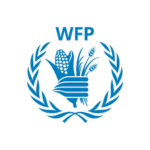The end-line evaluation of the U.S. Department of Agriculture (USDA) McGovern-Dole Food for Education and Child Nutrition Program for WFP School Feeding in Lao PDR (awarded September 2017) was commissioned by the WFP Country Office. The scope of the evaluation included an assessment of all the activities outlined within the project Award including areas with Water, Sanitation and Hygiene (WASH) and literacy activities, and all types of beneficiaries including educators, cooks and storekeepers, smallholder farmers, and school-aged children and their parents/caregivers, as well as national and subnational governance structures. The evaluation followed a theory-based, utilization-focused and quasi-experimental approach. It used both primary and secondary data collected through qualitative and quantitative methods. The quantitative component was used for estimating extent of outcome changes for early grade students, teachers, parents, and other beneficiaries based on the baseline and monitoring data (and associated tools). It was followed up by qualitative data collection for developing a holistic understanding, contextualizing and further triangulating results. Secondary data collection involved content analysis of project documents, administrative records, monitoring reports, previous evaluations, and government policy and plan documents. The evaluation utilized a quasi-experimental design methodology and a stratified random sample of schools under treatment (‘project’) and comparison groups. The evaluation followed a theory-based, utilization-focused and quasi-experimental approach. It used both primary and secondary data collected through qualitative and quantitative methods. The quantitative component was used for estimating extent of outcome changes for early grade students, teachers, parents, and other beneficiaries based on the baseline and monitoring data (and associated tools). It was followed up by qualitative data collection for developing a holistic understanding, contextualizing and further triangulating results. Secondary data collection involved content analysis of project documents, administrative records, monitoring reports, previous evaluations, and government policy and plan documents. The evaluation utilized a quasi-experimental design methodology and a stratified random sample of schools under treatment (‘project’) and comparison groups.
Projects:
End-line Evaluation of USDA McGovern-Dole Grant for WFP School Feeding in Laos, 2017-2022
Sector: Agriculture, Food Systems, and Natural Resources
Client: WFP
Geography: East Asia and Pacific
Date: September, 2023

How can we help you?
- Launching a new strategy or reviewing an old one?
- Need new data-driven insights or deep subject-matter expertise?
- Evaluating your performance for course correction or seeking new tools to improve your effectiveness?
DeftEdge helps ensure organizations meet ethical standards and objectives on a range of issues, such as economically empowering women and refugees through access to finance and markets and mitigating the impact of climate change on vulnerable communities. (WFP, FAO, Pact, ActionAid, UNHCR livelihoods partners)
